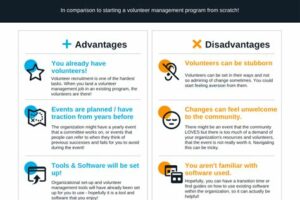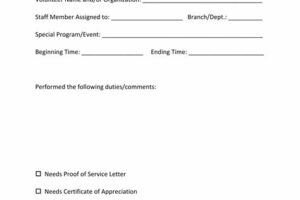Table of Contents
The CDC Volunteer Program offers individuals the opportunity to contribute their skills and time towards public health initiatives. Join our diverse team and make a difference in areas such as disease prevention, emergency response, and research. Explore the various volunteer roles available and help protect and improve the health of communities across the nation.
The CDC Volunteer Program is a remarkable initiative that offers individuals a unique opportunity to make a meaningful impact on public health. Whether you are a seasoned professional or just starting your career, this program provides an unparalleled platform to contribute to the well-being of communities worldwide. With its comprehensive training and extensive network of experts, the CDC Volunteer Program equips volunteers with the necessary skills and knowledge to address public health challenges effectively. Moreover, by participating in this program, you will not only gain invaluable experience but also have the chance to collaborate with like-minded individuals who share your passion for improving the health outcomes of diverse populations. Embarking on this journey as a CDC volunteer is not only an act of service but also a stepping stone towards personal and professional growth.
The CDC Volunteer Program: Making a Difference in Public Health
At the forefront of public health initiatives, the Centers for Disease Control and Prevention (CDC) has been instrumental in safeguarding the well-being of communities across the United States. To further extend their reach and impact, the CDC has established a dynamic volunteer program that invites individuals from various backgrounds to contribute their time, skills, and expertise. This article explores the CDC Volunteer Program, its objectives, and the invaluable role volunteers play in enhancing public health outcomes.
1. An Introduction to the CDC Volunteer Program
The CDC Volunteer Program is a unique opportunity for individuals passionate about public health to directly contribute to the CDC’s mission. Volunteers can participate in a wide range of activities, including research, community outreach, education, and emergency response efforts. This program serves as a platform for collaboration between the CDC and motivated individuals who share a common goal of improving public health outcomes.
2. Objectives of the CDC Volunteer Program
The CDC Volunteer Program aims to achieve several key objectives. Firstly, it seeks to enhance the capacity of the CDC by recruiting and mobilizing skilled volunteers. These volunteers bring diverse perspectives and expertise, enriching the CDC’s ability to address complex public health challenges effectively. Additionally, the program aims to foster community engagement and promote public health awareness through volunteer-led initiatives.
3. Volunteer Activities
The CDC Volunteer Program offers numerous activities for individuals to get involved in. Volunteers can engage in research projects, data analysis, program evaluation, and policy development, contributing directly to the CDC’s evidence-based approach. Additionally, volunteers can participate in community outreach events, health education campaigns, and disaster response efforts, playing a vital role in public health promotion and emergency preparedness.
4. Benefits of Volunteering with the CDC
Volunteering with the CDC offers numerous benefits for individuals seeking to make a difference in public health. Firstly, it provides a unique opportunity to work alongside renowned experts in the field, gaining valuable experience and expanding professional networks. Moreover, volunteers have the chance to contribute directly to impactful projects, making a tangible difference in the lives of communities. The CDC Volunteer Program also offers training and development opportunities, further enhancing volunteers’ skills and knowledge.
5. Eligibility Criteria
To become a volunteer with the CDC, individuals must meet certain eligibility criteria. While specific requirements may vary depending on the role and project, common prerequisites include a minimum age of 18, U.S. citizenship or legal residency, and a background check. Some roles may also require specific qualifications or experience in relevant fields such as public health, medicine, or research.
6. How to Apply
The application process for the CDC Volunteer Program is straightforward. Interested individuals can visit the CDC’s official website and navigate to the volunteer section. There, they will find detailed information about available opportunities and the application process. Applicants are typically required to submit their resume, complete an online form, and provide references if necessary. The CDC reviews applications and matches volunteers with suitable projects based on their skills, interests, and availability.
7. Time Commitment
The time commitment required for volunteering with the CDC varies depending on the specific project and role. Volunteers can choose to contribute on a part-time or full-time basis, depending on their availability and the requirements of the project. Some roles may have a fixed duration, while others offer more flexibility. The CDC values the commitment of its volunteers and strives to accommodate their schedules as much as possible.
8. Impact of the CDC Volunteer Program
The CDC Volunteer Program has a significant impact on public health outcomes. Through the contributions of dedicated volunteers, the CDC is able to extend its reach and address critical public health challenges more effectively. Volunteers play a crucial role in supporting research efforts, improving community engagement, and promoting health education. Their involvement enhances the CDC’s ability to prevent diseases, respond to emergencies, and create healthier communities across the nation.
9. Testimonials from CDC Volunteers
The experiences of CDC volunteers highlight the program’s value and impact. Many volunteers have expressed their satisfaction in being able to directly contribute to meaningful projects and witness the positive changes they help bring about. They also emphasize the personal and professional growth opportunities provided by the CDC Volunteer Program, such as networking, skill development, and exposure to cutting-edge research and public health practices.
10. Join the CDC Volunteer Program Today
If you are passionate about public health and eager to make a difference, consider joining the CDC Volunteer Program. By dedicating your time and expertise to this vital initiative, you can contribute directly to improving the health and well-being of communities across the United States. Visit the CDC’s official website today to explore available opportunities and take the first step towards becoming a valuable CDC volunteer.
Program Overview
The CDC Volunteer Program offers individuals the opportunity to contribute their time, skills, and expertise to support the agency’s mission of protecting public health. Volunteers play a crucial role in various initiatives, ranging from research projects to emergency response efforts. Joining this program allows individuals to make a meaningful impact on public health while gaining valuable experience and professional development opportunities.
Eligibility and Requirements
To participate in the CDC Volunteer Program, individuals must meet certain eligibility criteria, such as being at least 18 years old and having relevant skills, qualifications, or experience. Additionally, volunteers are required to adhere to the agency’s policies, procedures, and ethical standards. Background checks and immunizations may also be necessary depending on the specific volunteer role.
Volunteer Opportunities
The CDC Volunteer Program offers a wide range of opportunities for individuals with diverse backgrounds and expertise. These include research projects, community outreach programs, laboratory support, emergency response efforts, and administrative tasks. Volunteers may also have the chance to collaborate with CDC staff and partners, participate in training sessions, and engage in professional networking events.
Application Process
To become a CDC volunteer, individuals need to complete the online application form, which consists of providing personal information, relevant experience, and preferences for volunteer assignments. After submission, the application will be reviewed, and if selected, applicants may be contacted for further steps, such as interviews or orientation sessions. The application process aims to match volunteers’ skills and interests with suitable opportunities within the agency.
Training and Support
Volunteers in the CDC program receive training and support to ensure they are equipped with the necessary knowledge and skills for their roles. This may include orientation sessions, online courses, on-the-job training, and guidance from mentors or supervisors. Regular communication channels and resources are also available to address any questions or concerns that may arise during the volunteer experience.
Duration and Commitment
The duration of volunteer assignments within the CDC program can vary, ranging from short-term projects to long-term engagements. The commitment required may depend on the specific opportunity and the availability of the volunteer. Flexibility is often offered to accommodate various schedules and availability, with both full-time and part-time options available.
Benefits and Recognition
Participating in the CDC Volunteer Program provides volunteers with several benefits, including the opportunity to contribute to public health efforts, expand professional networks, enhance their resumes, and develop new skills. Volunteers may also receive recognition for their contributions, such as certificates of appreciation or letters of recommendation. Additionally, the program allows individuals to gain a deeper understanding of the work done by CDC and its impact on public health.
Volunteer Success Stories
The CDC Volunteer Program has witnessed numerous success stories from individuals who have participated in the program. These stories highlight the achievements, experiences, and personal growth of volunteers during their time with the agency. These success stories inspire and motivate others to join the program and make a positive difference in public health.
Point of View: CDC Volunteer Program
The CDC Volunteer Program offers a unique opportunity for individuals to contribute their time and skills towards promoting public health and supporting the mission of the Centers for Disease Control and Prevention. With its extensive reach and impact, the CDC relies on dedicated volunteers to assist in various projects and initiatives that aim to improve the well-being of communities across the nation. Here is an overview of the CDC Volunteer Program from a professional perspective:
Significance of Volunteering with the CDC:
The CDC Volunteer Program plays a critical role in strengthening public health efforts by harnessing the power of volunteers who are passionate about serving their communities.
Volunteers have the opportunity to directly contribute to the CDC’s mission of protecting America from health, safety, and security threats, both domestically and internationally.
Engaging in volunteer work with the CDC allows individuals to make a meaningful difference in public health outcomes and contribute to the overall well-being of society.
Benefits of Participating in the CDC Volunteer Program:
Volunteering with the CDC offers a chance to gain valuable experience and knowledge in the field of public health, enhancing one’s professional growth and career prospects.
Volunteers have access to training and educational resources provided by the CDC, allowing them to enhance their skills and expertise in specific areas of interest.
The CDC Volunteer Program provides networking opportunities with professionals in the field of public health, fostering connections that can lead to future collaborations and career advancements.
Volunteer Roles and Responsibilities:
Volunteers may be involved in a wide range of activities, including data analysis, research, community outreach, program coordination, and event planning.
The CDC ensures that volunteers are assigned tasks that align with their skills, interests, and availability, ensuring a rewarding and fulfilling experience for both the volunteers and the organization.
Volunteers are expected to adhere to the CDC’s professional standards and code of conduct, maintaining confidentiality and professionalism in all aspects of their work.
Application and Selection Process:
Interested individuals can apply to the CDC Volunteer Program through the official CDC website, following the outlined application process.
The selection process involves reviewing applications, conducting interviews, and assessing the suitability of candidates based on their qualifications, skills, and commitment to public health.
Successful applicants will receive appropriate training and orientation before starting their volunteer assignments, ensuring they are well-equipped to contribute effectively.
In conclusion, the CDC Volunteer Program offers an invaluable opportunity for individuals to actively participate in promoting public health and supporting the CDC’s mission. By volunteering, individuals can make a significant impact while gaining valuable experience and contributing to their professional growth. The CDC Volunteer Program serves as a platform for collaboration, learning, and networking, fostering a community of dedicated individuals working towards a healthier and safer future.
Thank you for taking the time to visit our blog and learn more about the CDC Volunteer Program. We hope that the information provided has been helpful in giving you a deeper understanding of the program and its significance in public health. As a volunteer-driven initiative, the CDC Volunteer Program plays a crucial role in supporting the CDC’s mission to protect and improve the health of individuals and communities across the nation.
By joining the CDC Volunteer Program, you have the opportunity to contribute your skills, knowledge, and passion to the important work being done at the CDC. Whether you are a healthcare professional, a student, or someone with a strong desire to make a difference, there are numerous ways for you to get involved and make an impact. Through volunteering, you can gain valuable experience, expand your professional network, and develop new skills that will benefit both your personal and career growth.
We encourage you to explore the various volunteer opportunities available within the CDC Volunteer Program. From assisting with research projects and data analysis to providing support during emergency response efforts, there is a wide range of roles that you can take on based on your interests and expertise. Volunteering with the CDC not only allows you to directly contribute to public health initiatives, but it also offers a unique chance to collaborate with professionals who are at the forefront of their fields.
In conclusion, we would like to extend our gratitude for considering the CDC Volunteer Program as a platform for making a difference in the field of public health. Your dedication and commitment to improving the well-being of others are greatly appreciated. We encourage you to take the next step and apply to become a CDC volunteer. Together, we can work towards a healthier and safer future for all. Thank you once again for visiting our blog, and we look forward to welcoming you as part of our dedicated team of volunteers.
Video Cdc Volunteer Program
People also ask about CDC Volunteer Program:
What is the CDC Volunteer Program?
How can I become a volunteer for the CDC?
What are the requirements to participate in the CDC Volunteer Program?
What types of volunteer opportunities are available at the CDC?
What are the benefits of volunteering for the CDC?
Answers:
The CDC Volunteer Program is an initiative that allows individuals to contribute their time, skills, and expertise to support the mission of the Centers for Disease Control and Prevention (CDC).
To become a volunteer for the CDC, you can start by visiting the CDC’s official website. They have a dedicated page where you can find information on how to apply and join their volunteer program.
The requirements to participate in the CDC Volunteer Program may vary depending on the specific opportunity. Generally, volunteers are expected to be at least 18 years old and have a genuine interest in public health. Some positions may require additional qualifications or background checks.
The CDC offers a wide range of volunteer opportunities, including roles in research, emergency response, community outreach, health education, and administrative support. These opportunities allow volunteers to work alongside CDC professionals and contribute to various public health initiatives.
Volunteering for the CDC comes with several benefits. Firstly, it provides individuals with the chance to make a meaningful impact on public health efforts. Volunteers gain valuable experience, knowledge, and skills in public health. Additionally, volunteering can enhance your resume and provide networking opportunities within the field of public health.






